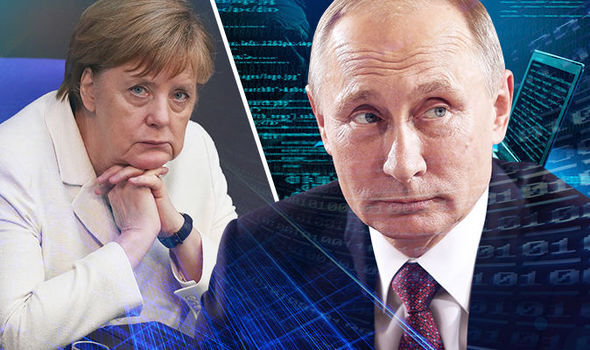Putin, Merkel discuss nuclear deal

TEHRAN - Russian President Vladimir Putin and German Chancellor Angela Merkel discussed the 2015 nuclear deal in a phone conversation on Thursday.
“They discussed the implementation of the Joint Comprehensive Plan of Action (JCPOA) on Iran’s nuclear program. Angela Merkel updated Vladimir Putin on the G7 discussions on this matter in Biarritz. It was noted that the efforts of all the concerned parties must be consolidated to preserve the JCPOA,” said a statement published by Kremlin.
U.S. President Donald Trump withdrew Washington in May 2018 from the JCPOA, which was reached between Iran and six world powers in 2015.
Afterwards, Washington re-imposed sanctions on Iran that had been lifted under the deal and ordered new ones.
On May 8, exactly one year after the U.S. withdrew from the multi-nation nuclear agreement, Iran announced a partial withdrawal from some aspects of the pact, saying that the country would no longer adhere to some of the limits on its nuclear activities. It also threatened to step up uranium enrichment if an agreement is not made within 60 days to protect it from the sanctions’ effects.
In follow-up to that deadline, on July 7 Iran announced that it has started enriching uranium to a higher purity than the 3.67% as the Europeans missed the 60-day deadline to devise a concrete mechanism to protect the country from the U.S. sanctions.
President Hassan Rouhani said on August 14 that Tehran will start the next step of reducing nuclear obligations after the second 60-day deadline.
The third step can include installation of more centrifuges, especially advanced ones.
In an interview with the Sueddeutsche Zeitung newspaper published on Tuesday, Iran’s Foreign Minister Mohammad Javad Zarif said the country will begin suspending more of its commitments under the nuclear deal between on September 6.
Paragraph 36 of the JCPOA provided a mechanism to resolve disputes and allows one side, under certain circumstances, to stop complying with the deal if the other side is out of compliance.
In an interview with France 24 aired on August 23, Zarif said that the nuclear deal was prepared based on mutual mistrust and there are mechanisms in it when one party violates the deal.
“The JCPOA is a comprehensive deal on the nuclear issue which was negotiated with open eyes. We knew that we could not trust each other. It was basically actually based on mutual mistrust. So, what we did was we put in place mechanisms that we could use if they violate. If we use those mechanisms, we do not need to leave the agreement we have shown strategic patience. That strategic patience may have been required in order to give Europeans time to implement their part of the deal after the U.S. withdrawal. Unfortunately, Europe was not able over the past 15 months to do that so we took certain measures and those measures as I said are reversible. If Europe begins taking the steps that it is required to take,” he maintained.
Mikhail Ulyanov, Russia’s permanent representative to international organizations in Vienna, said in July that Moscow understands the reason behind Iran’s steps in reducing commitments under the nuclear deal.
“We understand the steps taken [by Iran], the reasons that pushed the Iranians to take them. We call on Iran to refrain from further actions that could complicate the situation with the nuclear deal even more,” he told Sputnik.
NA
